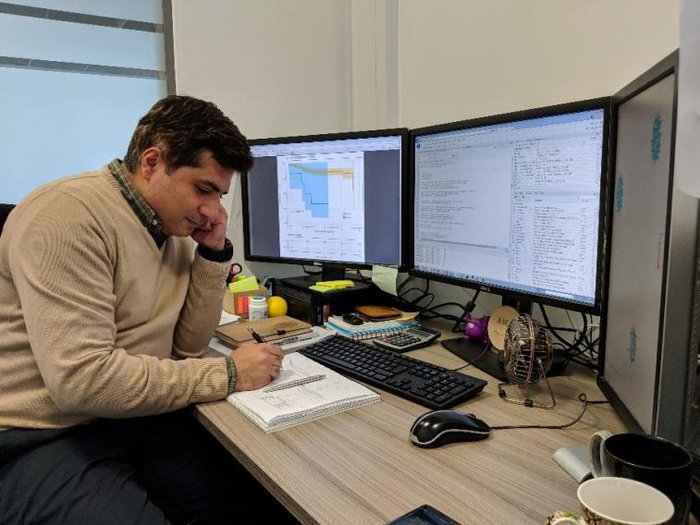This week I’ve analysed 18,000 genes!
We spoke to Dr Amir Enshaei to find out how his research will reduce the long-term side effects of treatment for children with blood cancer.

So, you're a Genomics Integrative Biology Fellow, can you tell us a little bit about what you do?
I work in the Northern Institute for Cancer Research at Newcastle University, using complex computational techniques to develop new methods of predicting the outcome of treatments for children with blood cancer.
Can you give us a few quick stats from your week?
This week I've analysed a total of 18,000 genes from 142 children with acute lymphoblastic leukaemia. I've spent on average 2 hours a day in meetings and walked close to 10 km at work every day.
That sounds pretty intense...
I love my job, because my research helps kids with blood cancer to have a healthier life ahead of them. That’s all I need to get up every morning and go to work with a big smile on my face!
But despite all our hard work, some children still experience relapse. I'm dreaming of the day that all cancer patients will be cured and we will have truly beaten cancer.
What are you working on right now?
I'm developing models that combine the different risk factors for a patient, like their age and the specific genetic errors in their blood cancer.
This gives us an individual ‘risk score’ for each patient which will tell us how quickly their cancer will progress and how well they are likely to respond to treatments. This risk score then can be used in the clinic to help clinicians have more insight on what will happen for each patient.
And how will that benefit people with blood cancer?
The side effects of cancer treatment, like fertility problems and heart damage, are widely known.
My research will help deliver personalised and tailored medicine for children with blood cancer, avoiding overtreatment and reducing the possible future side-effects of the treatment. After treatment has ended they'll have a better quality of life.
What's your favourite thing about your work?
I really enjoy working in a team of laboratory scientists, biologists, chemists, clinicians and policy makers. Every day at work I learn something new, but the best part is knowing that my research helps my fellow humans.
We're coming to the end of our questions so let's go off topic... which three people would you invite to a fantasy dinner party?
My father, as I lost him when I was two and never had a chance to talk to him. I’d also invite Rumi, who is my favourite poet, and Albert Einstein, one of the greatest scientists who ever lived!
And finally... what advice would you give to your younger self?
Read more... travel, travel, and travel more!
